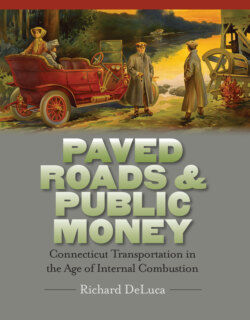Paved Roads & Public Money

Реклама. ООО «ЛитРес», ИНН: 7719571260.
Оглавление
Richard DeLuca. Paved Roads & Public Money
Отрывок из книги
Paved Roads and Public Money
Bridge Detail on the Merritt Parkway
.....
As automobility became increasingly common, many other states formed highway departments and initiated statewide road improvement programs. As their number increased, they gathered at annual “road conventions,” like the one hosted by Commissioner MacDonald in Hartford in 1904, to share their knowledge and experiences. Some seven hundred highwaymen from twenty-eight states attended the Hartford convention, along with a federal representative from the Department of Agriculture’s Office of Road Inquiry.36 Such gatherings established a social bond among highwaymen and a national consensus on certain policy issues, in particular the need for federal funding of good roads. By 1914, as Congress studied the possibility of a national highway program, state highwaymen created a nationwide organization of their own called the American Association of State Highway Officials (AASHO), which worked closely with federal officials and Congress to sort through the legal, legislative, and engineering details of a national highway effort.
There were several overriding concerns, first and foremost the legality of such a program. After efforts in the early 1800s to create a national highway program were vetoed by three different presidents on the grounds that the national government had no authority to build roads within individual states, the issue was resolved in 1907 by the U.S. Supreme Court in Wilson v. Shaw, which stated directly the government’s right under the Constitution to build interstate highways: “This power in former times was exerted to a very limited extent … and many of our statesmen entertained doubts as to the existence of the power to establish ways of communication by land … [but] land transportation has so vastly increased [and] a sounder consideration of the subject has prevailed and led to the conclusion that Congress has plenary power over the whole subject. Congress, therefore, has … the power … to authorize the construction of a public highway connecting several states.”37
.....